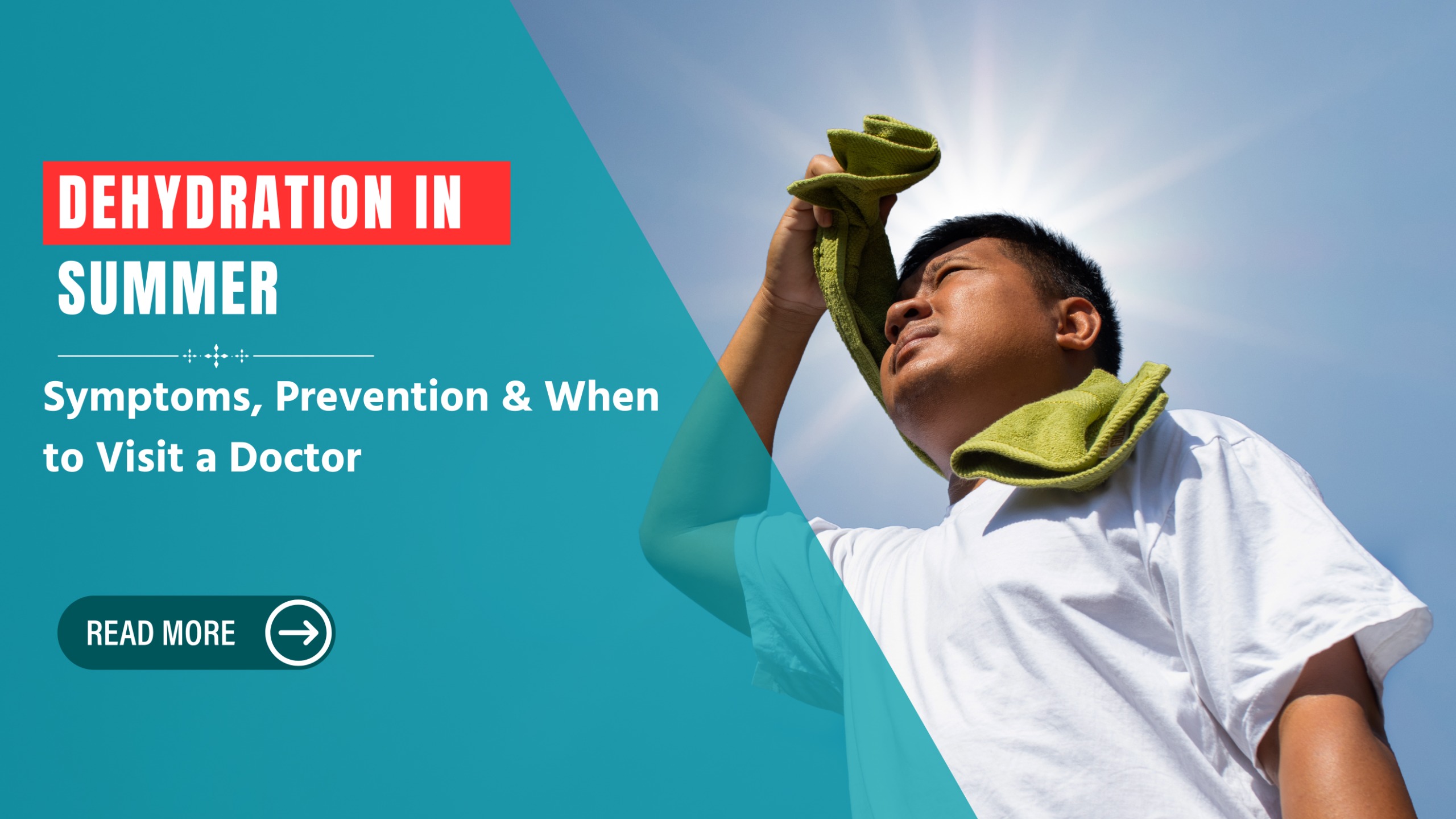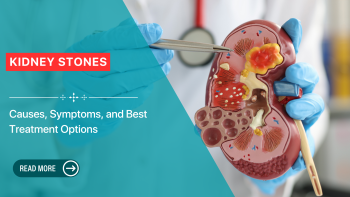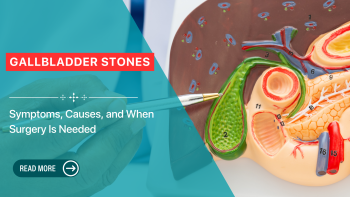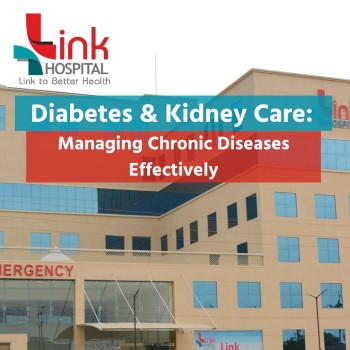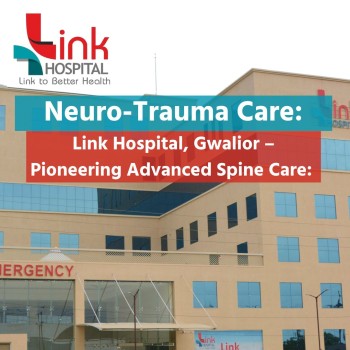Dehydration in Summer: As temperatures soar during the summer months, the risk of dehydration increases significantly. Dehydration occurs when the body loses more fluids than it takes in, impairing its normal functions. It can range from mild to severe and, in extreme cases, can become life-threatening. Understanding its symptoms, learning how to prevent it, and knowing when to seek medical help is crucial, especially in regions with intense heat.
At Link Hospital, Gwalior, we are committed to spreading awareness and offering expert care to manage and treat dehydration and related heat conditions effectively.
What is Dehydration?
Dehydration is a condition where the body lacks the necessary amount of fluids to function correctly. Water is vital for regulating body temperature, maintaining blood pressure, and eliminating waste. In summer, excessive sweating, exposure to heat, and insufficient fluid intake can quickly lead to dehydration.
Common Causes of Dehydration in Summer:
● Excessive sweating due to heat and humidity
● Inadequate water intake
● Vomiting or diarrhoea
● Increased physical activity without hydration
● Alcohol or caffeine consumption
Symptoms of Dehydration
Recognising the early symptoms of dehydration is vital to prevent complications. Symptoms can vary depending on the severity.
Mild to Moderate Dehydration:
● Dry mouth and dry skin
● Increased thirst
● Decreased urine output or dark yellow urine
● Fatigue or feeling light-headed
● Headaches
● Muscle cramps
Severe Dehydration:
● Extreme thirst
● Rapid heartbeat or breathing
● Sunken eyes
● Low blood pressure
● Confusion or irritability
● No sweating, despite high temperatures
● Unconsciousness in extreme cases
Note: Severe dehydration is a medical emergency and requires immediate attention.
Dehydration in Children and the Elderly: A Special Concern
In Children:
Children are more vulnerable to dehydration because they have a higher body water content and may not communicate their thirst well.
● Dry tongue and lips
● No tears when crying
● Sunken soft spot on the head (in infants)
● Decreased urination (fewer wet diapers)
● Lethargy or irritability
In the Elderly:
The elderly may have a reduced sense of thirst and underlying conditions like diabetes or heart disease that increase their risk.
● Confusion or dizziness
● Low blood pressure
● Poor skin elasticity
● Rapid breathing
Preventing Dehydration During Summer
Prevention is always better than a cure, especially during harsh summers.
Tips to Stay Hydrated:
1. Drink Plenty of Water:
Consume 8–10 glasses of water daily. Increase intake if you are outdoors or exercising.
2. Eat Hydrating Foods:
Fruits like watermelon, cucumber, oranges, and strawberries are excellent sources of water.
3. Avoid Caffeine and Alcohol:
These increase fluid loss and should be limited during hot weather.
4. Dress Appropriately:
Wear loose, light-colored cotton clothing to stay cool and reduce sweat loss.
5. Use Oral Rehydration Solutions (ORS):
For mild symptoms, ORS can help replenish lost fluids and electrolytes.
6. Avoid Peak Sun Hours:
Stay indoors or in shaded areas during peak heat hours (12 PM – 4 PM).
When to Visit a Doctor?
If you or someone around you shows signs of severe dehydration, immediate medical attention is required.
Seek professional help if you notice:
● Continuous vomiting or diarrhoea
● No urination for more than 8 hours
● Dizziness upon standing
● Confusion or disorientation
● High fever accompanied by dehydration symptoms
● Fainting or unconsciousness
Link Hospital Gwalior: Your Partner in Emergency and Preventive Care
At Link Hospital, Gwalior, we offer state-of-the-art emergency care, intravenous hydration therapies, and expert consultations to treat dehydration and related conditions effectively. Our dedicated medical team is trained to handle all levels of dehydration, especially during the high-risk summer season.
We are equipped with:
● Advanced emergency units
● 24/7 ambulance services
● Experienced doctors in general medicine and internal care
● Specialised care for children and the elderly
Stay Safe This Summer with Link Hospital
Don’t let dehydration sneak up on you or your loved ones. Recognise the symptoms early, stay hydrated, and seek medical help when necessary. If you or someone you know shows signs of severe dehydration, don’t delay.
Visit Link Hospital, Gwalior – the Best Multi-Speciality Hospital with advanced emergency care units and a dedicated team ready to serve you round the clock.
Call Now for Emergency Help or Book Your Appointment Today!
